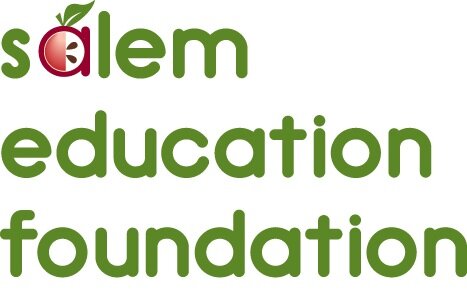Mapping a City-Wide Approach to Education Reform that Aligns Resources to Support All Kids
By: Leah Shafer
Political leaders at all levels, in all parties, continually pledge to expand opportunity and close gaps caused by poverty and inequality. But what would it take to really deliver on those promises?
One approach is to put children at the center of these aspirations and to align community services and resources to give every child an equal chance to succeed through school and into adulthood. The initiative — now in its second year, and spearheaded by former Massachusetts Secretary of Education Paul Reville — is called By All Means, a project of the Education Redesign Lab at the Harvard Graduate School of Education.
By All Means is emphasizing that cities need to partner with schools for children to succeed — because no matter how well or how much children learn inside of school, they still have widely disparate experiences outside of it, which contribute to or inhibit their learning.
“Out of school factors have a huge impact on student achievement in school and on their futures. If a child is coming to school hungry or is homeless, he cannot learn, no matter how great that teacher may be,” says Driscoll. “We all play an integral role in making sure our kids are prepared for the future.”
To start that work, Salem has created a “children’s cabinet,” which brings city leaders together to create new connections and a sense of shared accountability. Driscoll and Ruiz meet bimonthly with the head of Salem’s health and social services department and leaders from the schools, community organizations, and foundations to set goals and review their progress.
At these meetings, innovative partnerships from different sectors of the city are formed, allowing the leaders to more acutely target what Salem’s children need. For example, the North Shore Medical Center began funding preK-12 supports through its Community Benefits program, an agreement that sprung from these conversations. And the United Way is providing multifaceted support to various community leadership programs that aim to close the achievement gap.
With the launch of a citywide movement called Our Salem, Our Kids, Salem is making youth development the responsibility of all adults in the city, and asking local businesses, health care professionals, and youth development organizations to get involved. The city is currently training leaders in youth-servicing organizations on building strong adult-child relationships, so that they can better support young people. “We believe that taking a holistic approach to student learning, examining social and emotional needs and creating individual plans to support each student will enable our kids to better focus in school and achieve their highest potential,” says superintendent Ruiz. The message to children: All of the adults in their city are working for them, for their wellbeing, and for their futures.
Aplicación en la ciudad de un enfoque de la reforma educativa que adapte los recursos para ayudar a todos los niños
Los dirigentes políticos de todos los niveles, en todos los partidos, prometen continuamente incrementar las oportunidades y cerrar las brechas causadas por la pobreza y la desigualdad. ¿Pero qué haría falta para cumplir realmente esas promesas?
Un enfoque es poner a los niños en el centro de estas aspiraciones y adaptar los servicios y los recursos comunitarios a fin de dar a cada niño igualdad de oportunidades para alcanzar el éxito en la escuela y en la adultez. La iniciativa, ahora en su segundo año, — y dirigida por el ex secretario de educación de Massachusetts, Paul Reville — se llama By All Means (“De todos modos”), un proyecto del Education Redesign Lab de la Escuela Graduada de Educación de Harvard.
By All Means hace hincapié en que las ciudades necesitan asociarse con las escuelas para que los niños triunfen, porque independientemente de cuán bien o cuánto aprenden los niños dentro de la escuela, igualmente tienen experiencias muy desiguales fuera de esta, las cuales contribuyen a su aprendizaje o lo inhiben. “Los factores extraescolares tienen un efecto profundo en los logros de los alumnos dentro de la escuela y en sus futuros. Si un niño viene a la escuela con hambre o no tiene hogar, no puede aprender, independientemente de cuán fantástica sea la maestra”, dice Driscoll. “Todos jugamos un papel esencial a la hora de asegurarnos de que nuestros niños estén preparados para el futuro”.
Para comenzar ese trabajo, Salem ha creado un “gabinete de los niños”, que reúne a los dirigentes de la ciudad para crear relaciones nuevas y un sentido de responsabilidad compartida. Driscoll y Ruiz se reúnen dos veces por mes con el director del Ministerio de Salud Pública y Bienestar Social de Salem y con autoridades escolares, organizaciones comunitarias y fundaciones para fijar objetivos y repasar sus avances.
En estas reuniones se forman asociaciones innovadoras de diferentes sectores de la ciudad, las cuales permiten a los dirigentes responder más rápidamente a las necesidades de los niños de Salem. Por ejemplo, el North Shore Medical Center comenzó a financiar asistencia a niños desde jardín de infantes hasta doceavo grado mediante su programa de beneficios comunitarios, un acuerdo que surgió de estas conversaciones. Y United Way está brindando apoyo polifacético a varios programas de liderazgo comunitario dedicados a cerrar la brecha de logros.

